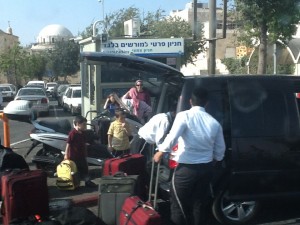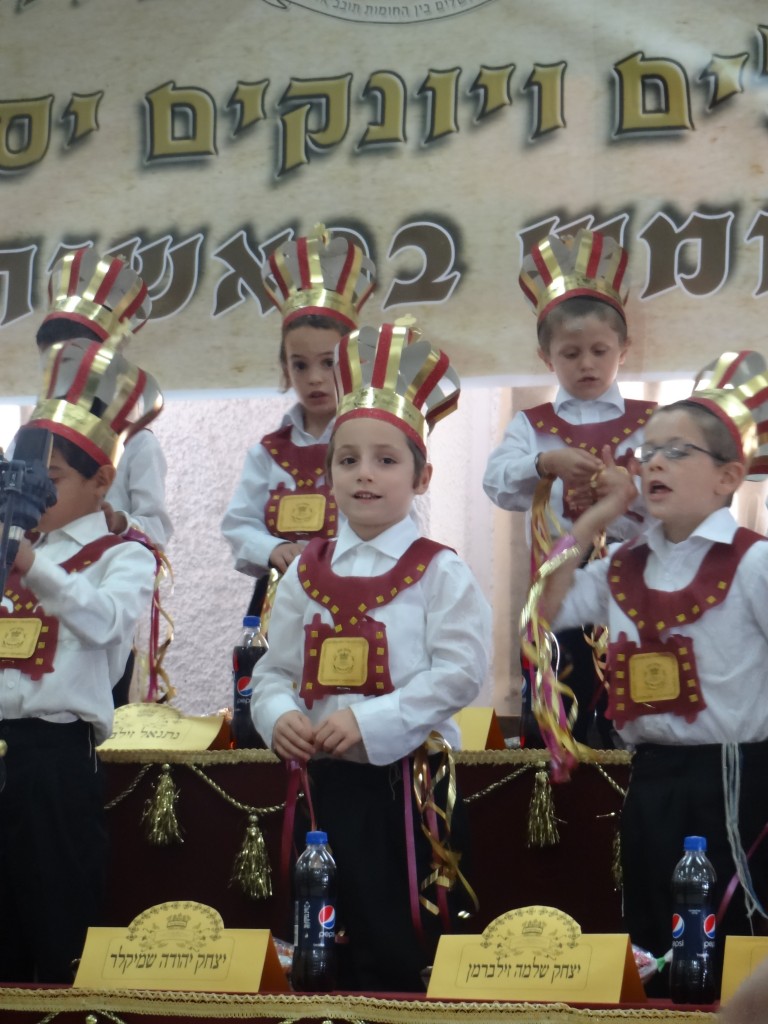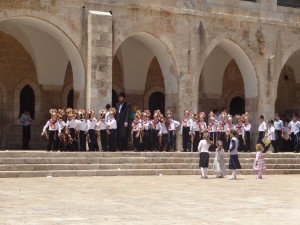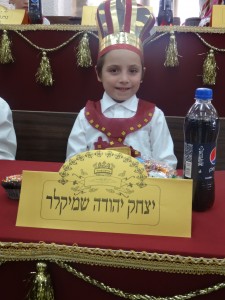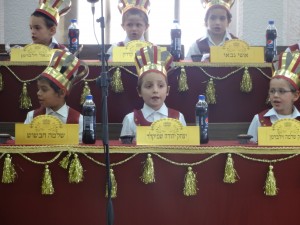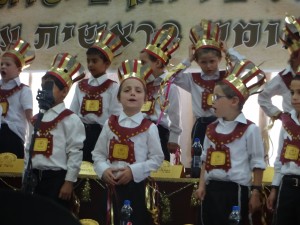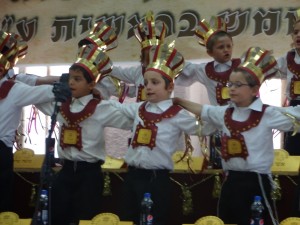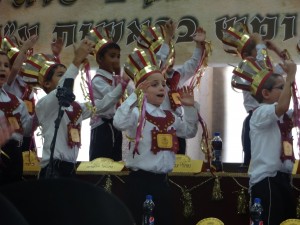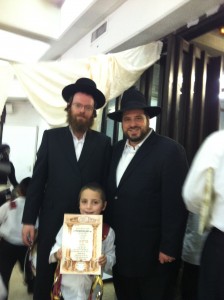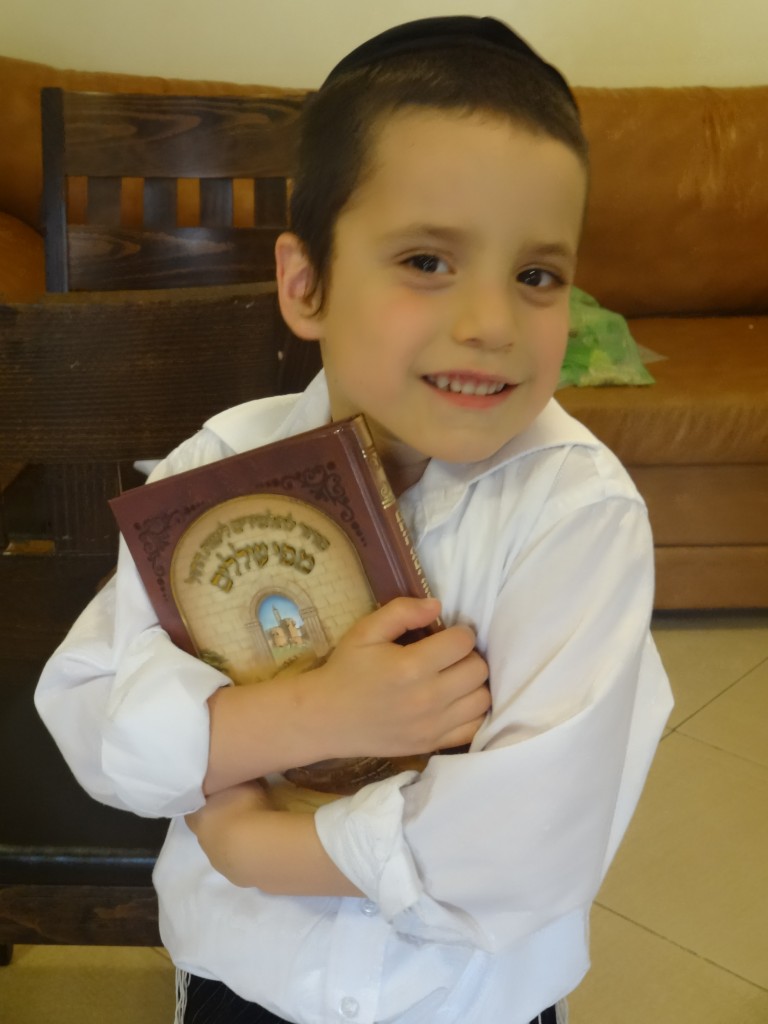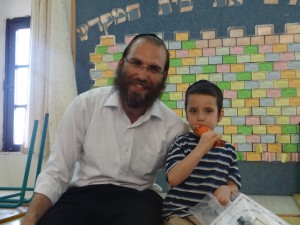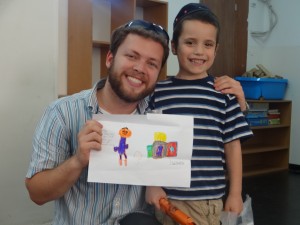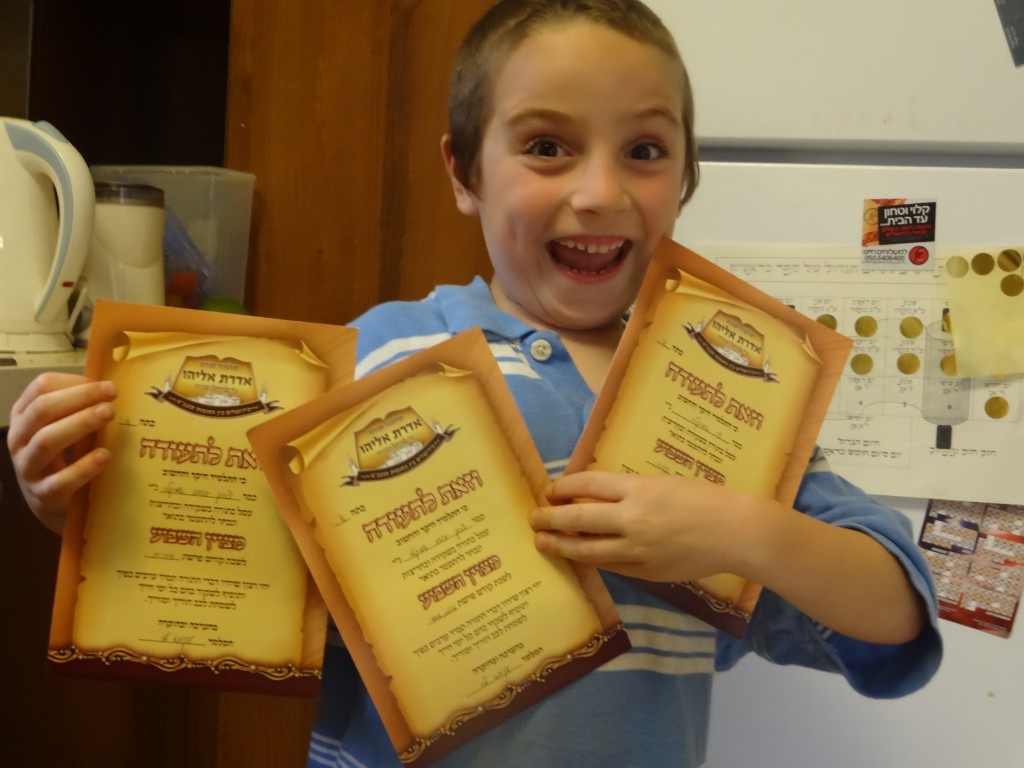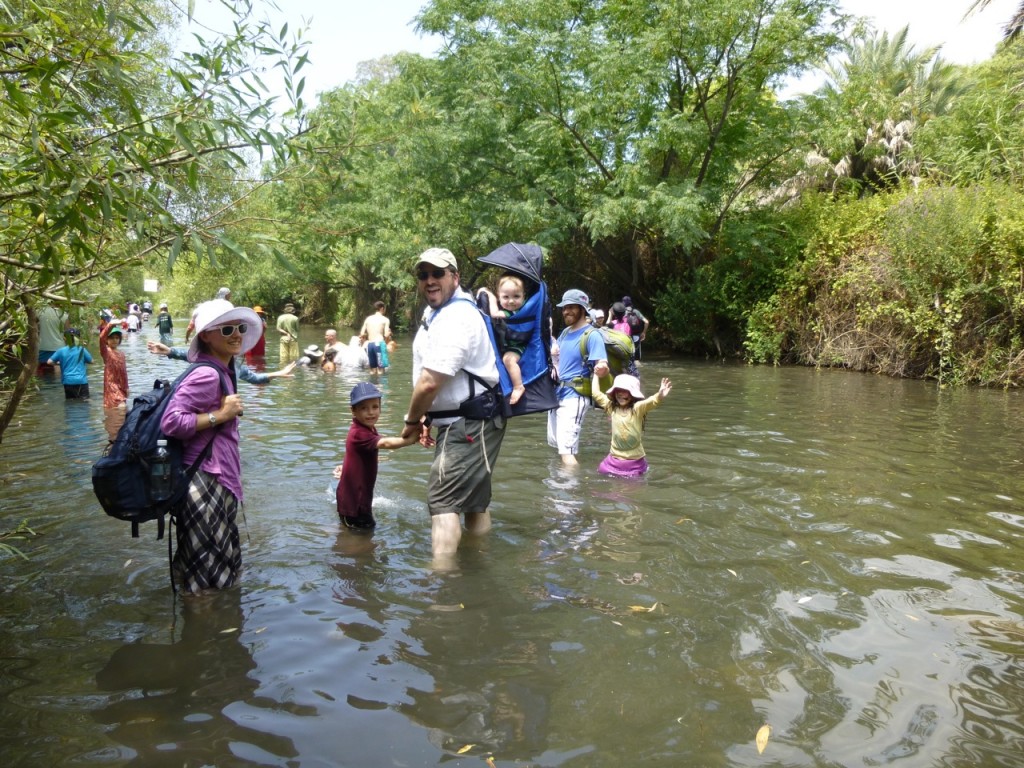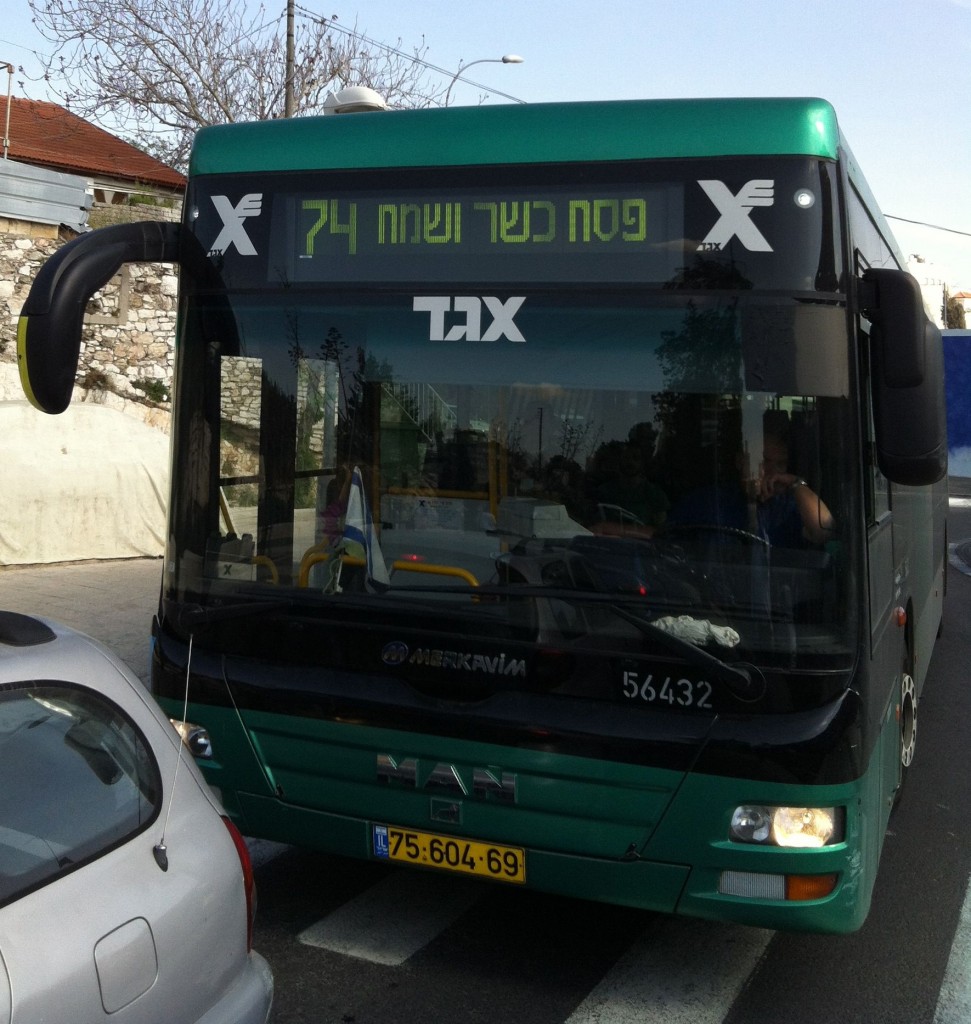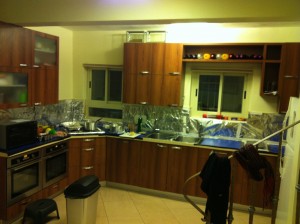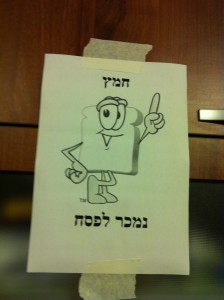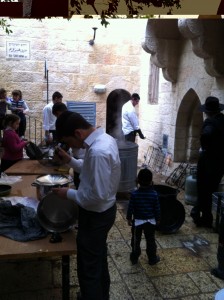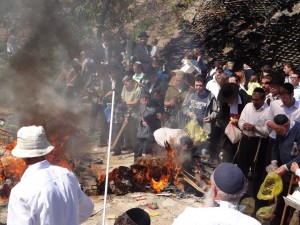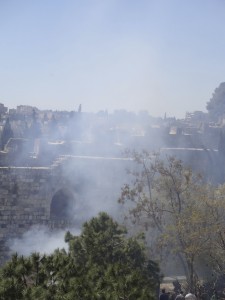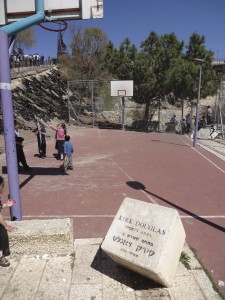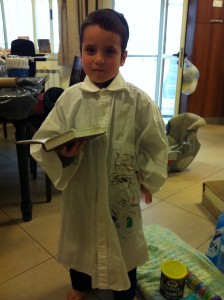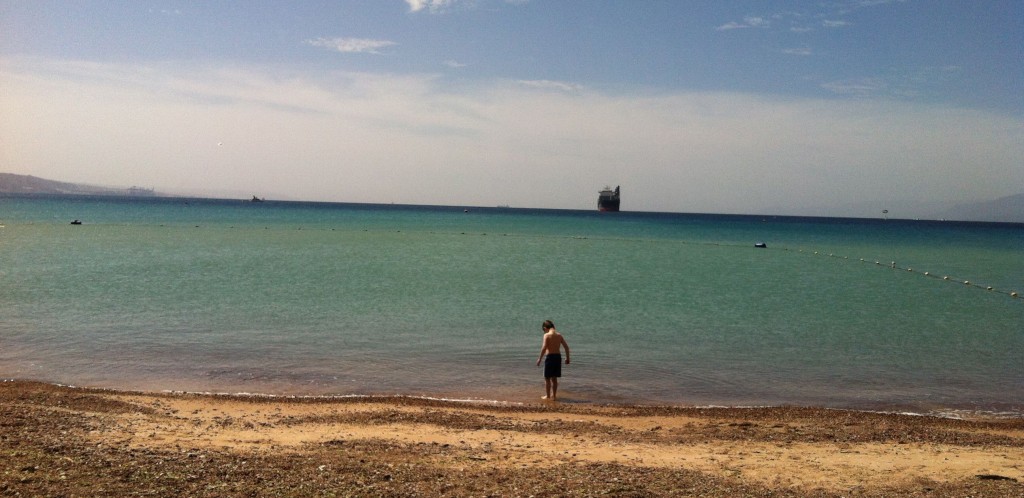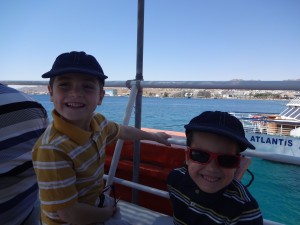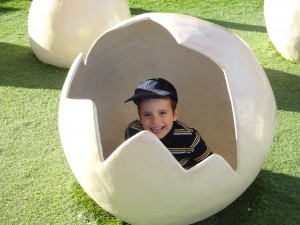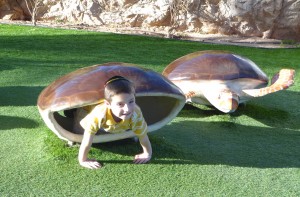If I thought it was tough to find the time to blog in Israel, it has been even more difficult here in Chicago. In case you’re keeping score, it’s been 10 months since we returned.
It was kind of a grueling trip back. Our driver miscalculated the time to get the van packed (we had a lot of bags) and we got to the airport late. Only the heroic efforts of a British Airways counter agent got us onto the plane on time – she literally ran us through security and out to the gate. The boys were mesmerized by the totally overwhelming BA in-flight entertainment system – tons of movies, on-demand, pause-able, etc. – and did not sleep. We spent overnight in London, thanks to a useless 10pm-to-10am layover, then flew to Newark. Again, BA in-flight, no sleep for the older boys.
I found myself dreading those two words from the customs agent: “Welcome Home.” I used to really like that they said it. It’s a nice semi-personal touch for an American returning from abroad. But, at that moment, I didn’t feel like I was returning home. I’d left home, and there was no telling when or if it would be my home again. That’s a lot of baggage to lay on some random uniformed bureaucrat, and maybe he sensed it, since he uncharacteristically skipped the usual welcome. Or maybe he was eager to get this bleary-eyed family with small, wired kids out of his space before somebody threw a tantrum. Either way, I was grateful.
The funny thing is how tangible the yerida was. Let me preface this by saying that I love the U.S.A., and I’m an unabashed fan of capitalism. Still, it was amazing how, immediately when we arrived, the gashmius – the focus on the material – was palpable, as if it were in the air. We were back in the land of high-quality, low-cost merchandise… all the stuff that a person could want, and then some… armadas of malls arrayed for attack… Amazon Prime 2-day delivery guaranteed.
Jerusalem was suddenly a long way away.
Everything looked so weird for a while. Too big, too fancy. The sight of our minivan, with not only 7 seats but a huge trunk to boot (in Israel, the few 7-seaters have the last seats flush with the rear door), and its plush leather interior, and automatic doors, etc., etc. made me laugh out loud. Our house was unfathomably immense. The kitchen was shocking, the hardwood floors obscene. Among the strangest things – and I’ve since learned that pretty much everybody who spends a long stretch in Israel has the same experience – were the 2-liter bottles. I would’ve sworn they were 3 liters. They looked so ridiculously short and fat. Really, all of the quantities here were overwhelming.
We’d spent a year getting along fine without a microwave… and now we had two again. Two dishwashers. Two refrigerator/freezers. Two sinks with two garbage disposals. Two tables (kitchen and dining room). Two cars. Three-and-a-half bathrooms.
Zero Kotels.
Those first few weeks back were a strange mix. There was glee in reconnecting with friends, who couldn’t wait to hear about our time in Israel and to tell us how much we were missed. There was the mild alienation of confronting the reality that a year had gone by in Chicago, as well… new faces, new facts on the ground, and the uncertain footing of not knowing just what had changed. There was the marveling at American excess, seen with the temporary eyes of outsiders, and the furtive hope that something of our Jerusalem sensibilities would stay with us through the inevitable re-acclimation. And there was the heady feeling of having the wind at our backs again, and not in our faces. We weren’t immigrants anymore. It was back to being a native, with a thorough, sophisticated, and potent understanding of the language and culture. It felt super-easy to go places and to get things done.
For quite a while, I cried during every Shemoneh Esrei.
We worked on getting our lives in order, getting the boys ready for school, getting everyone to the doctor and dentist for long-overdue checkups, getting our phones back in order – wait, did I say something about it being super-easy to get things done? Comcast had other ideas… That was… well, even today, I’m not ready to talk about it.
I also started expanding my library with sefarim. It felt good to get the staples, in Hebrew, knowing that I could actually use them (albeit with difficulty). Mikraos Gedolos – Chumash (the “Five Books of Moses” with a large collection of classic commentators) and Nach (ditto for the rest of the Bible – Neviim (“Prophets”) and Kesuvim (“Writings”)), Malbim on Chumash, Nesivos Shalom, and a full set of Shas (the Babylonian Talmud).
I undertook the learning schedule recommended by my Rosh Yeshiva: 1 hour a day with one of the guys back in Jerusalem, via Skype or phone, sometime in the middle of the day – not first thing in the morning or at night when I’m tired. (This is in addition to the learning I do first thing in the morning, and at night, when I’m tired.) It hasn’t been easy to keep this up, but we’ve managed. It isn’t learning all day, by a long shot, but it’s significant, and it’s way beyond where I was when I left here.
I’m not the same – our family is not the same. Whatever else there is to say, we have to call it success.

